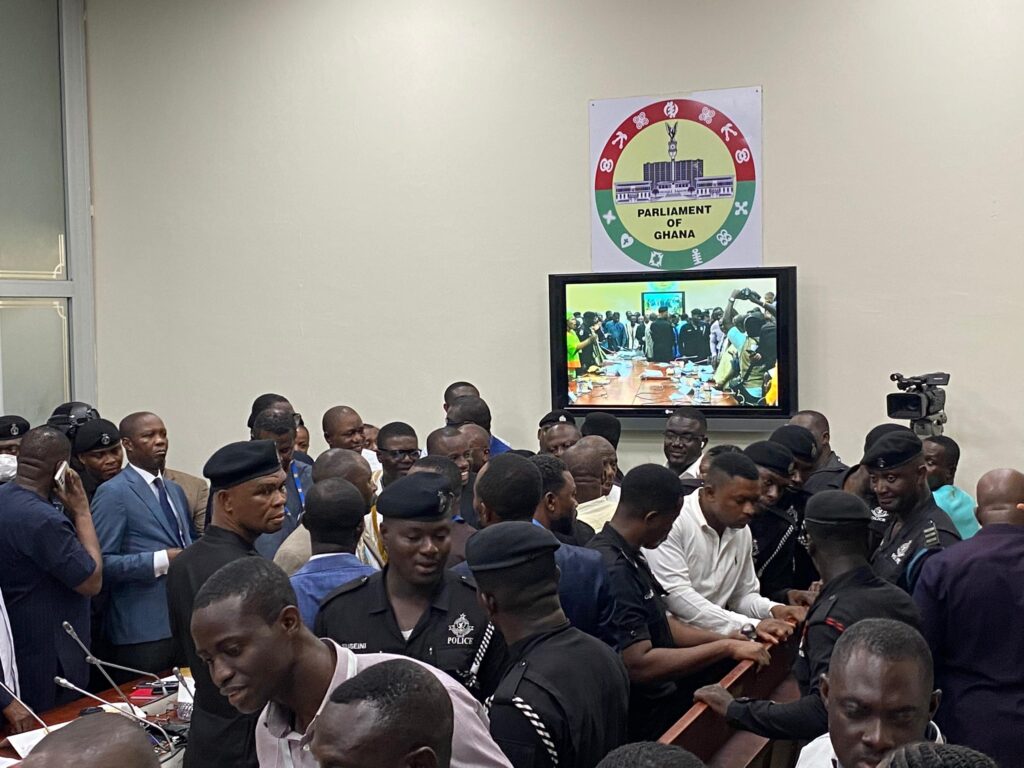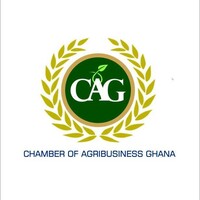Parliamentary Dispute Over Vetting of Okudzeto Ablakwa and Akandoh: Key Details

On January 30, 2025, chaos erupted in the Parliament of Ghana during the vetting of two key ministerial nominees—Kwabena Mintah Akandoh, the Minister of Health-designate, and Samuel Okudzeto Ablakwa, the Minister of Foreign Affairs-designate. The disturbance, which involved heated altercations and the destruction of parliamentary materials, stemmed from disagreements about the number of nominees being vetted that day and other procedural issues.
Frank Annoh-Dompreh, the Member of Parliament for Nsawam Adoagyiri and the Minority Chief Whip, explained that the Appointments Committee had originally agreed to vet four nominees on January 30, 2025. However, the situation became contentious when the number of nominees was unexpectedly increased to five, with two more individuals added to the agenda. These nominees included Kwabena Mintah Akandoh and Samuel Okudzeto Ablakwa. This sudden change led to confusion and frustration, particularly among the Minority members of Parliament, who were caught off guard by the addition of the extra nominees.
The chaos reached a peak when members of the Minority side physically expressed their discontent by overturning vetting tables and destroying microphones and other materials placed on the table. Tensions rose as the situation became increasingly chaotic, with heated verbal exchanges and even physical confrontations among MPs. A dramatic moment occurred when Rockson-Nelson Dafeamekpor, the Member of Parliament for South Dayi, was seen engaged in a verbal clash with a colleague MP during the unrest.
One of the most significant points of contention during this chaotic scene was the role of the Clerk of the Appointments Committee. Alexander Afenyo-Markin, the Minority Leader, accused the Clerk of Parliament of being biased in favor of the National Democratic Congress (NDC), claiming that the Clerk was supporting the NDC’s agenda during the vetting process. Afenyo-Markin argued that this partiality was contributing to the confusion and the tense atmosphere, further escalating the conflict. According to him, the Minority had been cooperative and agreeable in their approach until this point, but the actions of the Clerk and the shifting dynamics in the vetting process left them feeling frustrated.
The altercation led Majority Leader Mahama Ayariga to intervene and make an announcement regarding the continuation of the vetting process. He confirmed that the vetting would no longer take place in the original venue, as the destruction of microphones and tables had made it unsuitable for further proceedings. Instead, the vetting would be moved to the Speaker’s Conference Room, which, due to its smaller size, would not accommodate additional guests. Ayariga emphasized that the decision to increase the number of nominees being vetted on that day had contributed to the disorder and had created a difficult situation for everyone involved. He explained that in future vetting sessions, a more moderate approach would be adopted to avoid provoking such unrest.
Ayariga also addressed the damaged equipment, acknowledging that the microphones and tables had been destroyed, which rendered the original venue unfit for the continuation of the vetting. He assured the committee that the necessary measures would be taken to rectify the situation, and the proceedings would resume the following day, at 9:00 AM, in the Speaker’s Conference Room. He also warned the nominees that, given the limited space in the new venue, they should refrain from bringing any additional individuals, as there would be no room for guests.
This disruption in Parliament is another example of the ongoing political tensions in Ghana, where disagreements and partisan divides continue to manifest in the legislative process. It highlights the challenges that Parliament faces in ensuring smooth and orderly proceedings, particularly when there are disagreements between the Majority and Minority parties. The incident underscores the need for greater communication and cooperation to avoid such confrontations in the future. The development also serves as a reminder of the fragile nature of political harmony in Ghana’s Parliament, where tensions often run high during critical decision-making processes.








